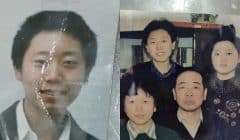Making Sense of Today’s China

Not Just Lattés and iPhones: To truly know todays China, one has to look beyond the Starbucks and Apple stores to a brutal campaign that has turned right and wrong upside down.
Ask a China watcher what the five most critical factors to understanding China are and you will hear a range of responses: economic growth, rampant corruption, the gap between rich and poor, Communist Party infighting, and so on.
But in most cases, something will be missing from the analysis. Something 100 million people strong. Something that, once understood, can fundamentally change how we think about China and how we engage with it.
That something is Falun Gong.
Few outside China have much knowledge of it. Those who do, have a vague sense that it may be old news. But for those who grasp this ever-present issue, it solves the most intractable paradoxes of present day China:
- Why are China’s leaders so reticent to loosen their grip over the judiciary and media, even at the cost of their credibility in the public’s eyes?
- Why is the Communist Party investing billions in internet censorship, surveillance cameras, and labor camps while schools and hospitals go without desperately needed resources?
- Why is Beijing still refusing to explain the source of the vital organs for tens of thousands of organ transplants that go on in their state hospitals while institutions such as the U.S. Congress continually issue condemnations against China’s forced organ harvesting of prisoners of conscience?
- Why does China still produce so many tainted products despite never-ending campaigns against corruption?
The answer to these puzzles begin in 1992, exactly 20 years ago, in a humble schoolhouse in northeast China. That day, Mr. Li Hongzhi gave his first public teaching of Falun Gong. He was the most recent in a lineage of spiritual masters dating back thousands of years.
A force for good
Falun Gong was different from other qigong practices being taught. While it included familiar, slow-moving energy exercises, similar to tai chi, it also involved something more—teachings that guided students on a path of moral self-improvement and spiritual discovery in their daily lives.
At the core of these teachings were three principles—Truthfulness, Compassion, and Tolerance (Zhen 真, Shan 善, Ren 忍), and the desire to align with them in thought and action.
That year, the practice spread quickly by word of mouth as people saw the lives of those around them changing. Sickly grandmothers transformed into epitomes of health. Couples nearing divorce saved their marriages. Within seven years, an estimated 100 million people had taken up Falun Gong, about one out of every 13 people in China.
Falun Gong’s impact extended beyond the family circle. Policemen who learned it would stop taking bribes, and workers would cease stealing from their factories. Though the country was still under the Communist Party’s thumb, this critical mass was beginning to truly stabilize Chinese society.
A fateful decision
This trajectory dramatically reversed in July 1999, when then-Communist Party chief Jiang Zemin launched a campaign to eradicate Falun Gong.
Jiang was jealous and fearful of how something outside the Party’s control could inspire tens of millions of people, even if it was for the good of society. Experts at the time said the move was Jiang’s personal decision, even an obsession. In going after Falun Gong, Jiang launched an assault on a core contingent of mainstream society. Imagine what was entailed by an effort to eradicate a practice followed by so many.
Jiang needed massive propaganda campaigns to demonize Falun Gong. New labor camps and makeshift detention centers were opened to hold the huge influx of detainees. An extralegal police task force was set up to implement the plan as well as an internet censorship apparatus to stop people from learning the truth online about what was happening.
Repressing virtue, rewarding vice
Besides the human and financial cost of the campaign, it also tore at the moral fabric of Chinese society. As the words Truthfulness, Compassion, and Tolerance became taboo, upholding these values became difficult and dangerous—Falun Gong practitioner or not—amidst a ferocious atmosphere of lies, torture, and discrimination.
Officials who actively participated in the torture and killing of Falun Gong adherents were promoted. Family members were forced to turn against each other. Members of the public were offered cash rewards for turning in their neighbors.
Meanwhile, those who refused to collaborate or stood up against the campaign were fired, abducted, imprisoned, subjected to nerve-fraying brainwashing tactics, and were sometimes killed. Not even well-meaning attorneys or honest government officials were spared.
Hundreds of thousands of hard-working, ordinary people from every profession and of every age were sent to labor camps for “re-education.” It was a domestic brain drain—and moral crisis—of staggering proportions.
Here to stay
Despite all of Jiang’s efforts, Falun Gong did not disappear. The ideas it espoused and the benefits it offered were too compelling to be erased—even under the relentless brutality of a well-oiled authoritarian machine.
Falun Gong practitioners persisted in their faith, with many resuming the practice after release from custody.
More than that, practitioners responded with a massive, innovative and nonviolent movement to encourage other Chinese to see through the Party’s lies and brutality as they pertained to Falun Gong, and beyond.
Homemade leaflets were made. DVDs were burned. Banners were hung. Software to circumvent internet censorship were developed.
Today, after almost two decades of oppression, some 20 to 40 million Falun Gong practitioners actively circulate information in China or send it abroad. In turn, investment in surveillance cameras and tracking equipment is skyrocketing in China as the Party redoubles its efforts to detain them.
At a time when Chinese citizens are protesting daily for more accountability and freedom, Party leaders dare not loosen their grip. To do so, they fear, would lead to their crimes against Falun Gong being revealed and their best weapons—imprisonment, propaganda, and censorship—neutered.
For those outside China, these dynamics present a dilemma. Do we engage with the Communist Party powers-that-be in order to protect short-term interests and a superficial appearance of stability?
Or, do we resist the Party’s co-optation tactics and do our utmost to preserve a force that offers the prospects of long-term hope, stability, and prosperity for China?
At this critical moment in history, China’s future may seem unpredictable. But one thing is certain: one can’t go wrong by standing up for the cause of Truthfulness, Compassion, and Tolerance.






